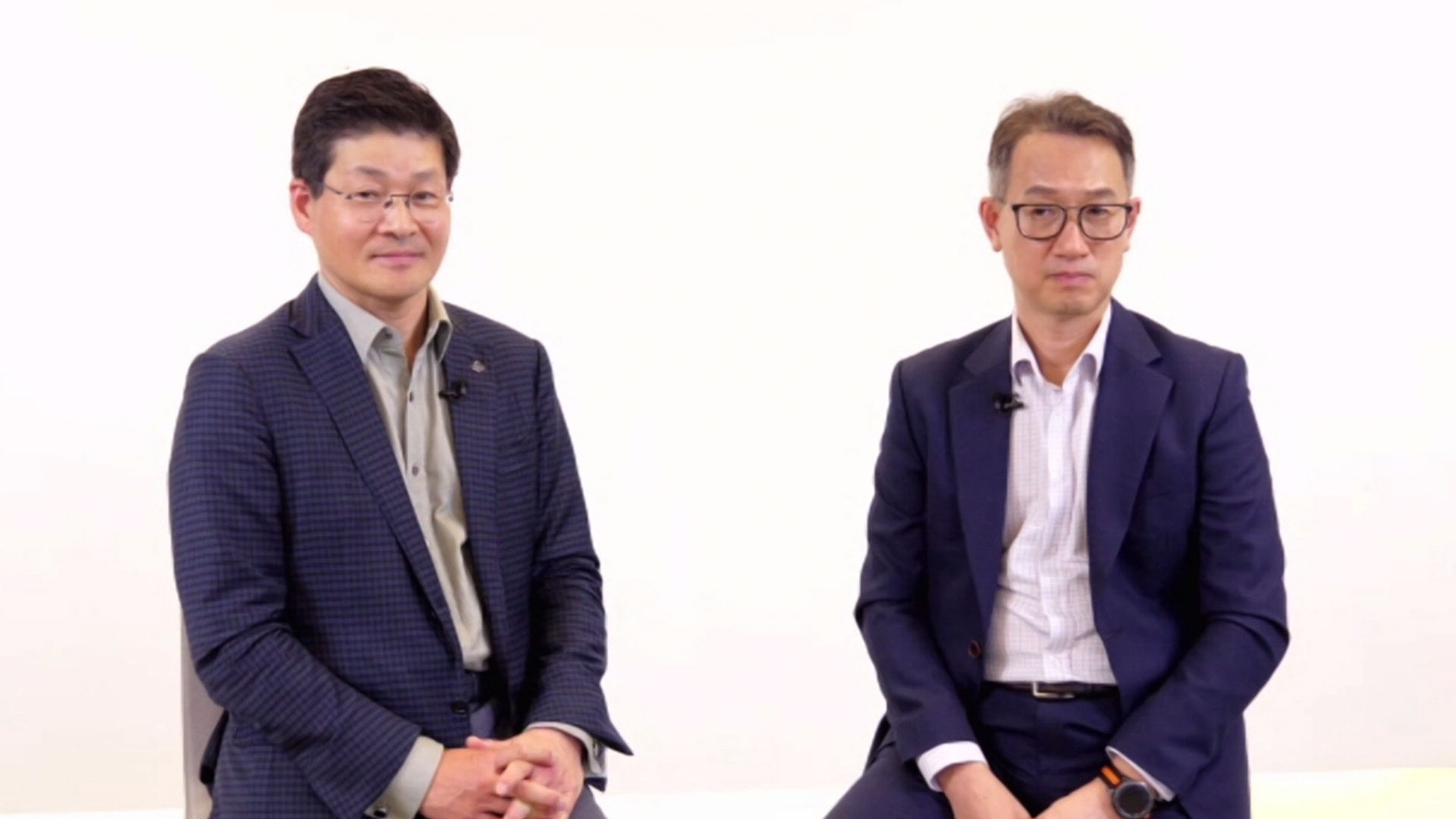 CLOUD
CLOUD
 CLOUD
CLOUD
 CLOUD
CLOUD
The digital transformation is not only happening in the U.S., but all around the world — including in South Korea.
And as companies like IBM Korea and Hyundai AutoEver Corp. wrestle with the complexities of a new world post-COVID, they are bringing change to how their country thinks about technology. This includes a huge commitment to industry-changing shifts with the medical world and the auto industry.
Khee-Hong Song (pictured, left), president and chief executive officer of IBM Korea, and Jung Sik Suh (pictured, right), CEO of Hyundai AutoEver, spoke with John Walls, host of theCUBE, SiliconANGLE Media’s livestreaming studio, during IBM Think. They discussed the ways that South Korea is seeing the digital transformation play out in their country. (* Disclosure below.)
[Editor’s note: The following has been condensed for clarity.]
Can you go a little bit deeper into what [the COVID-19] impacts have been? The economic impacts that Korea is currently suffering, but … looking for a rebound with the government?
Song: In an effort to recover from COVID-19 economic recession, Korean government announced Digital New Deal, which is to lay a foundation for digital economy that will spur economic growth and innovation. Now the policy aims to create a new digital economy, which is underpinned by new technologies, such as 5G, big data and artificial intelligence.
According to IDC research, 55% of Korean companies have already overcome the economic downturn and are moving toward the growth in “next normal.” They have been very active in making investments to become the enterprise of the future, and this is higher than the global average of 37% in terms of recovery rate. This indicates that leading Korean companies are quickly preparing for “the next,” even in the face of a crisis.
For Hyundai, if you could talk about it from your perspective in terms of that impact. And then, what kind of a rebound do you see in terms of digital in your business in the next 12 to 18 months?
Suh: The next 12 to 18 months we are reinforcing the digitalization — not just the working environment, but also others, especially … in terms of sales. Until now, most of the B2C sales changed to digital or the internet environment. But, unfortunately, car manufacturing OEM companies are not too ready for the e-commerce environment. But Hyundai is very actively … starting the e-commerce. So I think next … 12 to 18 month, two-digit percent of our sales … will be fulfilled by internet.
In terms of IBM in general … what’s the bottom-line impact there for you right now in terms of this massive shift over to digital?
Song: In IBM, our goal is to work with industry clients and technology partners to accelerate this transformation through automation, transition to hybrid cloud and help our clients to really gain some benefits from their change. So one area I can talk about is automation. We see increasing requirements from our clients on automation for operational excellence amid the economic downturn and for hygiene purposes as well.
So [Seoul’s Asan Medical Center] is one of the leading hospitals in Korea and has the largest number of beds. Asan hospital and IBM worked together to develop a bed allocation automation system based on design thinking, workshop and Garage method. The automation system considers a patient’s specific preferences, surgery schedule, customized treatment for each patient and various reservation status in each department.
The result was outstanding. The hospital could reduce the bed assignment lead time from 20 minutes to seven minutes with a 0% error rate. And, currently, more than a hundred hospitalization registration procedures are being processed every day without human intervention and patient satisfaction and productivity of medical staff have improved significantly. That is just one great example of automation, which is taking place in many other industries as well.
For Hyundai, what are some of those factors that you have thought about, and how much more are you going to do? What are you considering right now in terms of future transformations?
Suh: The car itself should be changed to digital. Currently, the software portion of the car is just 7 to 10%, but it’ll be changed to 20 to 30%. The other one is that … the car is just a software edge activity. It means … that the input and output, or some real-time transaction, or other computation and calculation analysis and decision could be the car cloud. Therefore, the cloud is the main body of the car software.
We have edge cloud and main cloud. [This will occur] within just several years. Firstly, Hyundai has currently more than 40% of the car connected [to the cloud]. Cumulatively, we are connected by around … 4 million [cars] in the word. It will be changed to 10 million [cars] … connected within one year.
Watch the complete video interview below, and be sure to check out more of SiliconANGLE’s and theCUBE’s coverage of IBM Think. (* Disclosure: TheCUBE is a paid media partner for IBM Think. Neither IBM, the sponsor for theCUBE’s event coverage, nor other sponsors have editorial control over content on theCUBE or SiliconANGLE.)
THANK YOU